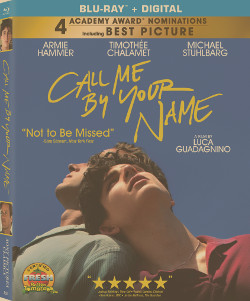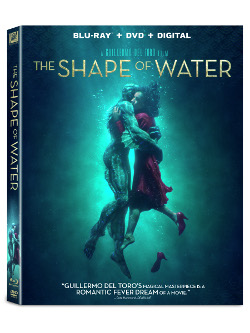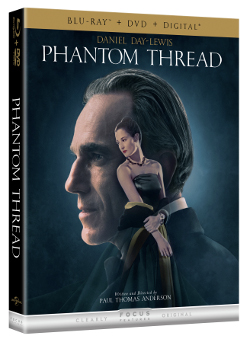Unforgettable Moments from Academy Award-Winning Gay Faves, Yours Forever to Stream
 Call Me By Your Name
Call Me By Your Name
Oliver (Armie Hammer) is facedown on the bed, fully clothed. He's just arrived at his professor's (Michael Stuhlbarg) home in picturesque northern Italy, and as the professor's son, Elio (Timothée Chalamet, astounding in this breakout role), gets him settled in his room, he gleefully stops just long enough to soak in the object of his desire, Oliver, simply lying there. Though brief, it's the beginning of a series of intensely intimate exchanges between Elio and Oliver that tease out their imminent summer romance. Every twitch and apprehensive recoil, every long, word-searching breath. And the kiss, in a field, amid a stretch of nature in bloom much like their budding tryst, is delightfully sumptuous. However, the film's heartful pinnacle comes during its final stretch, as Elio's father recognizes what we've known all along: that he sees and admires the burning desire and longing Elio has for Oliver. Director Luca Guadagnino's "Call Me By Your Name," which won screenwriter James Ivory the Oscar for Best Adapted Screenplay, moves with confident ease and a hypnotic slow burn. Stuhlbarg describes the cuts as non-lingering during an illuminating dialogue with Chalamet on the Blu-ray's commentary, shedding new perspective on seemingly lesser character interactions: "It's just a moment, and it's gone." That would be true for Stuhlbarg's remarkable speech if every transformative word – for Elio, for the audience – didn't land with the emotional resonance of something you'll never forget.
 I, Tonya
I, Tonya
In "I, Tonya," the mockumentary that does a good job of making you feel bad for Tonya Harding, Allison Janney is the mommie dearest we've been waiting for since, well, "Mommie Dearest." Winner of the Oscar for Best Supporting Actress, Janney's vulturous LaVona, the mother of Tonya Harding (Margot Robbie), is a horror-comedy show replete with outrageous, maybe-true, moral-testing moments. What does it say about us if we keel over in laughter when LaVona knocks young Tonya's chair to the floor? What does it say about us if we don't? Janney's scenes have a lot of teeth, but my favorite: When cute-kid Tonya is seen on the ice for the first time, and Janney's LaVona swallows that poor child whole. When Tonya has to pee, LaVona won't let her, because "I paid for you to skate, you're gonna stay on the ice and skate." So, Tonya pees on the ice. "Skate wet," LaVona scolds, to our morbid sense of delight. Of course, a public piss scene is critical in selling Tonya's story as one of queer underdog triumph, when she finally takes to the ice and successfully lands a triple axel in competition – no visible pee. LaVona isn't impressed, but we are: Watching CGI magic turn Robbie (to her credit, she trained for months and did perform some of the ice dancing) into an Olympic skater is exhilarating. Those stunning "how'd they do that?" visual effects are explored during a fascinating behind-the-scenes feature, included among deleted scenes and a commentary from director Craig Gillespie.
 The Shape of Water
The Shape of Water
In Guillermo del Toro's magical fairy-tale tribute to queerness, and the society that resists it, the Best Picture winner's god-like amphibious humanoid creature (Doug Jones) is at the mercy of a dangerous government agent (Michael Shannon). At the lab where he soaks in a giant water tank, a lonely cleaning lady, Elisa (Sally Hawkins), shows the tortured outcast human decency, feeding him eggs, playing him old records. Because she's a woman and he is a fish, her dearest friend, Giles (Richard Jenkins), resists the idea of rescuing this creature. That is, until he discovers how it feels when you can't have something you love. As a gay man living in the Cold War era, circa 1960s, Jenkins' scenes are imbued with heartbreaking outsider struggle, but never more than after he confronts racism and homophobia at a diner and tearfully ends up back at Elisa's place to pledge full support for her one true thing. Though the Blu-ray boasts an array of bonus features, including the featurette "A Fairy Tale for Troubled Times," del Toro lets his tender and transformative sci-fi drama speak for itself by not providing a commentary track.
 Coco
Coco
Mexican culture, family values and individuality are at the center of the wonderful "Coco," Oscar winner for Best Animated Feature. The queer duo comprised of producer Darla K. Anderson and co-director Adrian Molina (both thanked their respective partners during the Academy Awards telecast) share in telling the uplifting story of a young Latinx dreamer, Miguel, who has musician aspirations – despite his family's disapproval – akin to the man who he thinks is his great-great-grandfather, famous singer Ernesto de la Cruz. Written by Robert Lopez and Kristen Anderson-Lopez, who wrote a song you might've heard of called "Let It Go," Cruz's biggest hit is the timeless tune "Remember Me," which just so happens to be the heart beating inside Pixar's latest beautifully told and animated tale of self-discovery. As Miguel learns about his family's circle of life in the Land of the Dead, those who have passed and those who will pass, the film's rich center – the song – builds to a special scene where Miguel strums along and sings "Remember Me" to his abuelita, Coco, whose memory now fails her. But then she sings along, awakening treasured but long-forgotten memories. You're gonna cry so hard.
 Phantom Thread
Phantom Thread
Breakfast with Daniel Day-Lewis' Reynolds Woodcock, a dressmaker in '50s post-war London with an unbendable demand for perfection, is a taut affair. Give him silence, or he will make a fuss. To our wicked amusement, he fusses a lot, actually. About his perfect dresses, about the imperfect women who wear his perfect dresses, about the perfect dresses when they're slept in by boozers who decide to take naps in them. Woodcock counts Alma (an exquisite Vicky Krieps), a dowdy waitress he courts, as one in a long line of his throwaway dress-up dolls, but agreeable when he's a "spoiled baby," Alma contests his masochistic streak with searing clapbacks and concoctive spells. "Phantom Thread" is about a selfish, needy man, until it becomes about a woman's power over him. Alma and Woodcock's love story is soured and frayed, expressed through writer-director Paul Thomas Anderson's mystic lens, using dark comedy so deadpan and desert dry you could pour water on some of these scenes, only for it to evaporate. The use of butter, in particular, has a droll presence. Food as conflict is expressly palpable the second time Alma has breakfast with Woodcock, and the subtleties of the downplayed humor could almost go undetected: Alma, wiser to Woodcock's incorrigibility, scrapes butter on her toast like she's working construction, and then lifts the tea kettle high above her cup to make for a more audible pour. Not funny to Woodcock, but for that very reason, infinitely funny to me.
As editor of Q Syndicate, the international LGBT wire service, Chris Azzopardi has interviewed a multitude of superstars, including Meryl Streep, Mariah Carey and Beyonce. Reach him via his website at http://www.chris-azzopardi.com and on Twitter (@chrisazzopardi).











